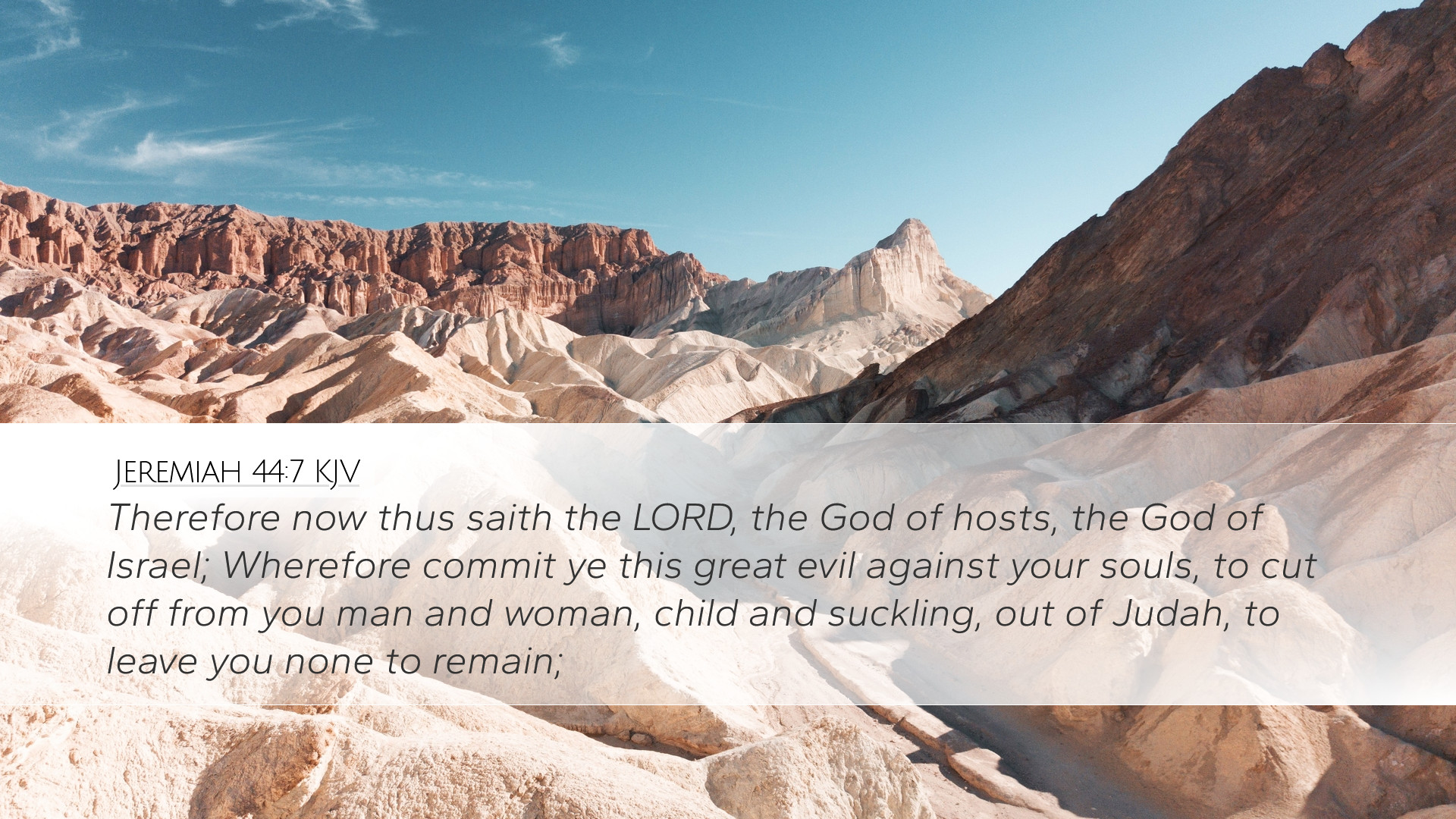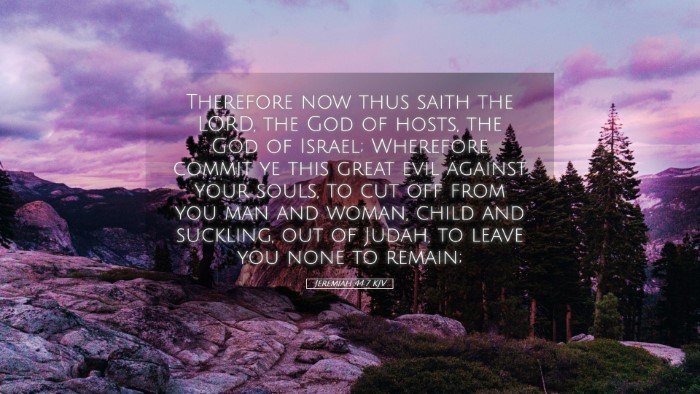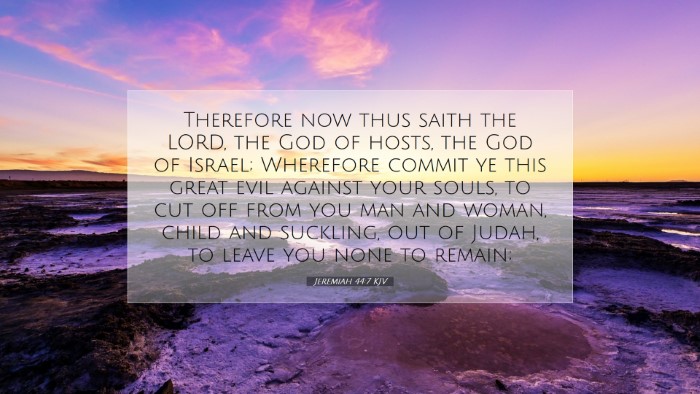Commentary on Jeremiah 44:7
Verse: "Therefore now thus says the LORD, the God of hosts, the God of Israel: Why do you commit this great evil against yourselves, to cut off from you man and woman, child and infant, out of Judah, leaving you without remnant?"
Introduction
This passage from Jeremiah 44:7 occupies a critical place in the prophetic discourse, highlighting God's call to repentance among the people of Judah. The commentary here draws from esteemed public domain sources, providing a multi-faceted interpretation enriched by theological insights aimed particularly at pastors, students, theologians, and Bible scholars.
Contextual Analysis
Jeremiah 44 is situated in a discursive setting where the prophet Jeremiah addresses the Jewish community in Egypt, particularly those who fled Jerusalem after the Babylonian conquest. Having turned to idolatry, they sought refuge in practices that were in stark opposition to their covenant with God.
Matthew Henry emphasizes that this chapter signifies the culmination of Israel’s persistent rebellion against God. They were warned repeatedly through various prophets but remained unrepentant. Their choice to worship the queen of heaven rather than adhere to Yahweh’s commandments brings forth their folly and spiritual blindness.
Theological Implications
The verse presents a rhetorical question from God, emphasizing the gravity of the people’s actions. The reference to “this great evil” stresses the self-destructive nature of idolatry. Albert Barnes expounds on this by recognizing that every sin has the potential for great consequence, particularly when it involves turning away from God’s grace.
Moreover, in rejecting God, the people of Judah were not only breaking the first commandment but also endangering the very survival of their community. The phrase, “to cut off from you man and woman, child and infant,” highlights the comprehensive devastation that results from forsaking divine guidance.
Historical Context
Adam Clarke notes that the backdrop of this warning is the historical context of the Babylonian exile. The Jewish exiles found themselves in a foreign land, and rather than relying on the promises of God for restoration, they turned to syncretistic practices consistent with their surroundings. The term "man and woman, child and infant" indicates a holistic destruction; it affects all generations, echoing the enduring consequences of disobedience unto future generations.
Exegesis of Key Phrases
-
"this great evil": According to Biblical understanding, evil is not merely the absence of good but an active rebellion against divine precepts. Henry delineates that such evil manifests as spiritual infidelity and moral decay, which are catastrophic in their implications.
-
"against yourselves": This prepositional phrase signifies a self-destructive tendency inherent in sin. Barnes articulates that when the people sin, they are effectively inflicting harm on themselves rather than on God, illustrating a lack of understanding of spiritual truth.
-
"to cut off": The Hebrew term used here suggests a severing of life and continuity. Clarke suggests that this phrase not only indicates physical death but also speaks to the spiritual separation from God, which ultimately leads to exile and desolation.
Pastoral Reflections
This passage serves as a poignant reminder for modern congregations regarding the consequences of forsaking God. Pastors are encouraged to utilize Jeremiah 44:7 in sermons that address contemporary idolatry—whether it be materialism, secularism, or other forms of spiritual complacency. Drawing upon the insights of Henry, Barnes, and Clarke, they can effectively communicate the dire need for repentance and spiritual renewal.
Conclusion
In conclusion, Jeremiah 44:7 offers a profound commentary on the nature of sin and its repercussions. The complexities of this verse resonate deeply with the themes of choice, consequence, and divine justice. As the people of Judah faced the inevitable consequences of their idolatry, so too must modern believers heed the call to return to God wholeheartedly. Through understanding and reflecting on this scripture, one can gain invaluable insights into the character of God, the seriousness of sin, and the hope for restoration through repentance.


